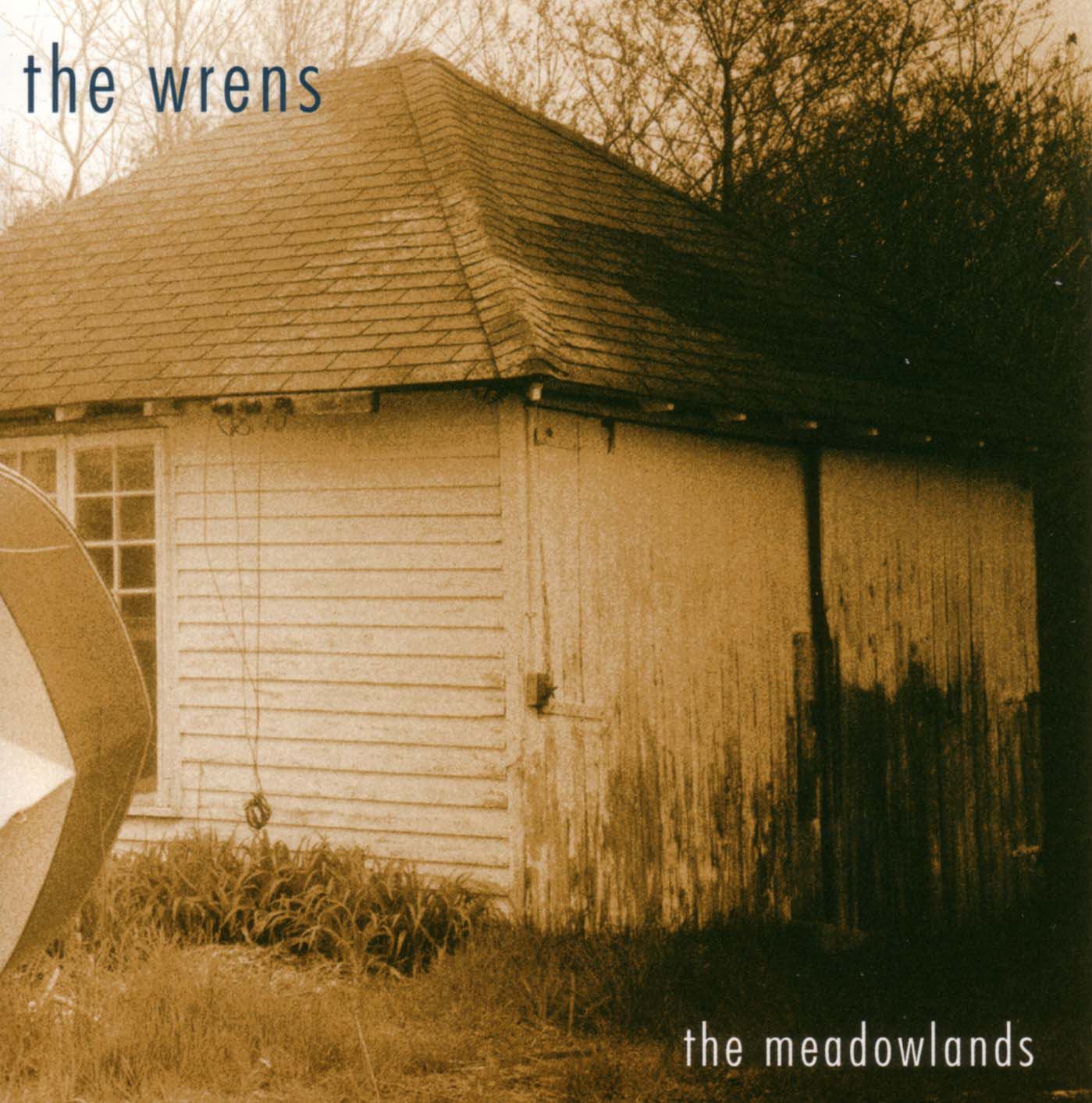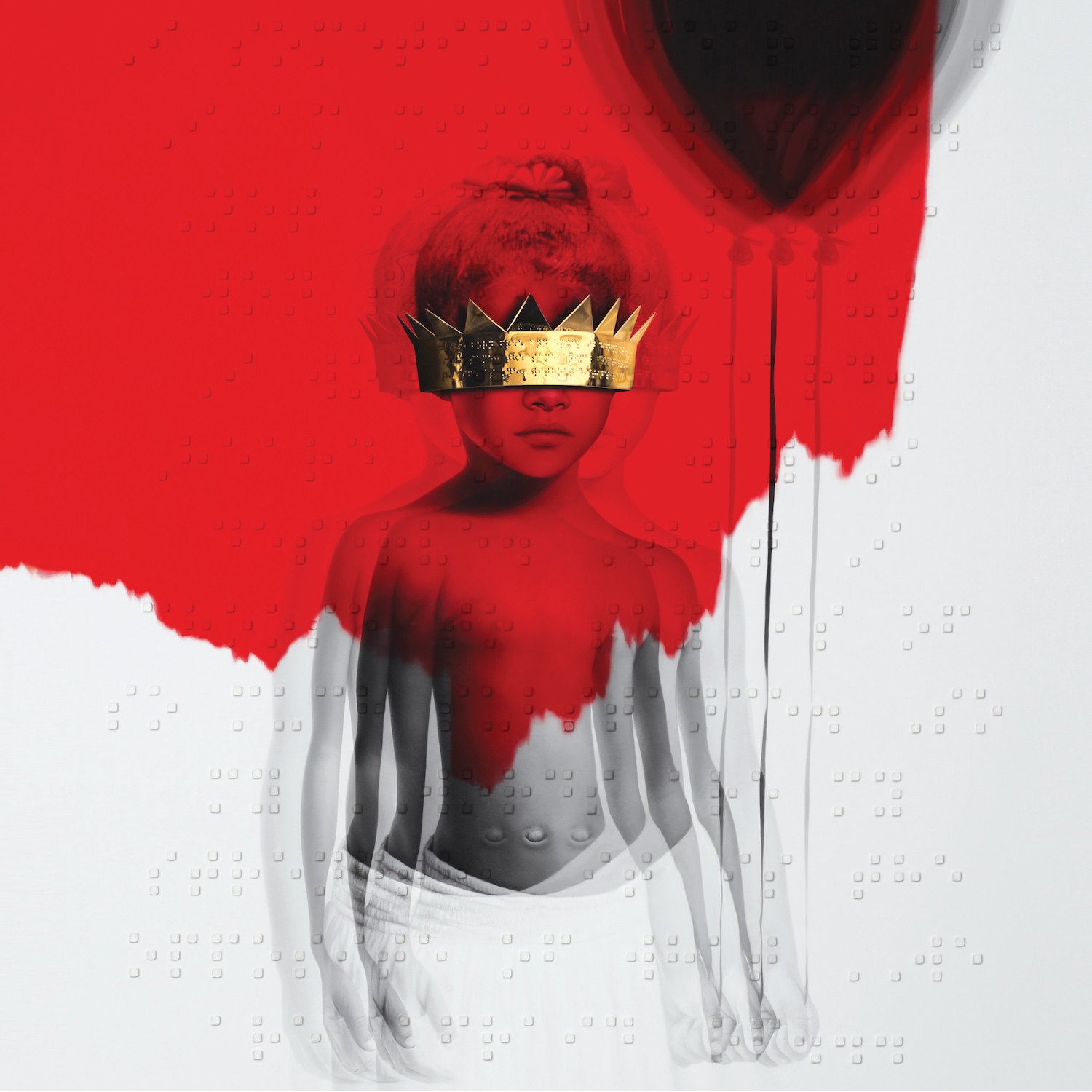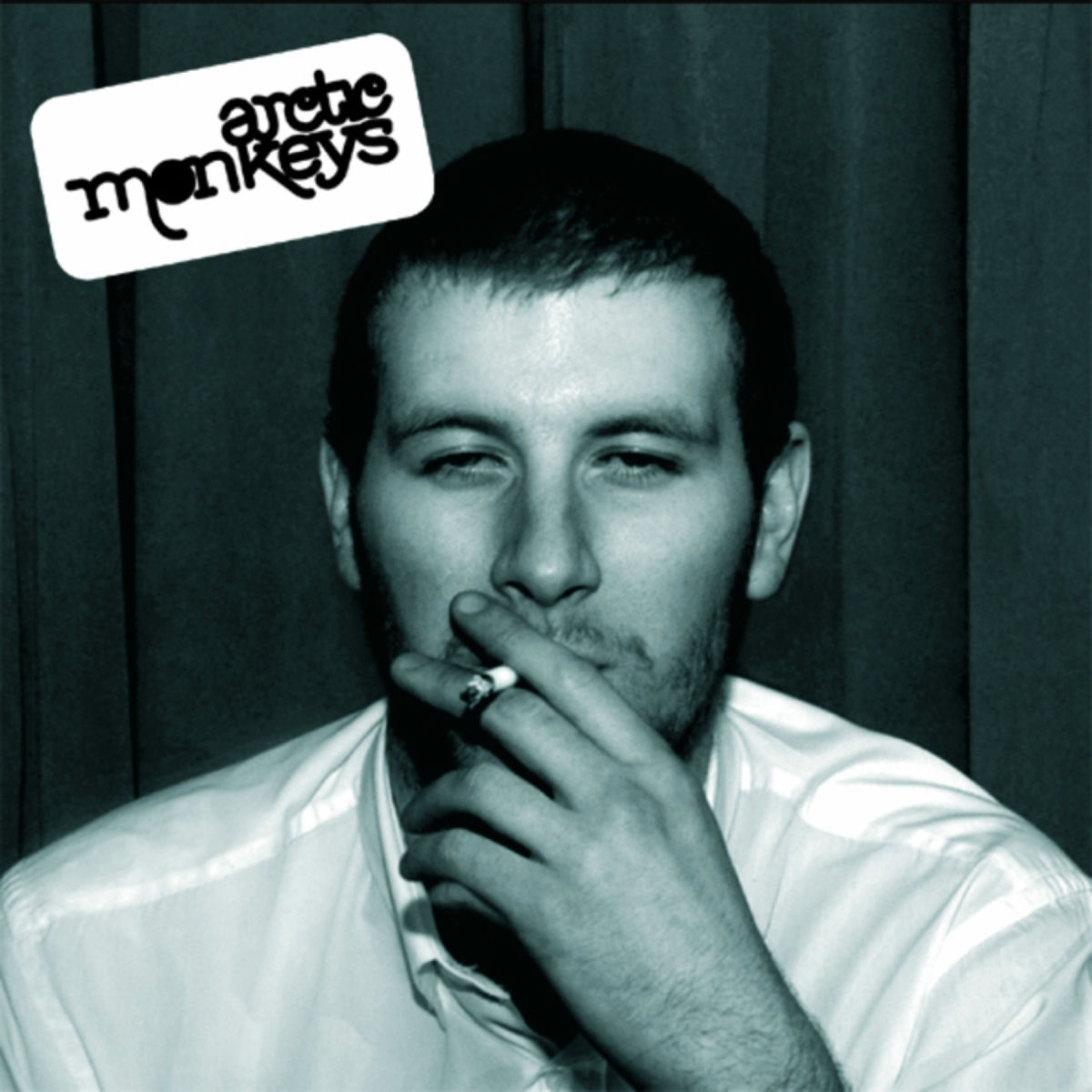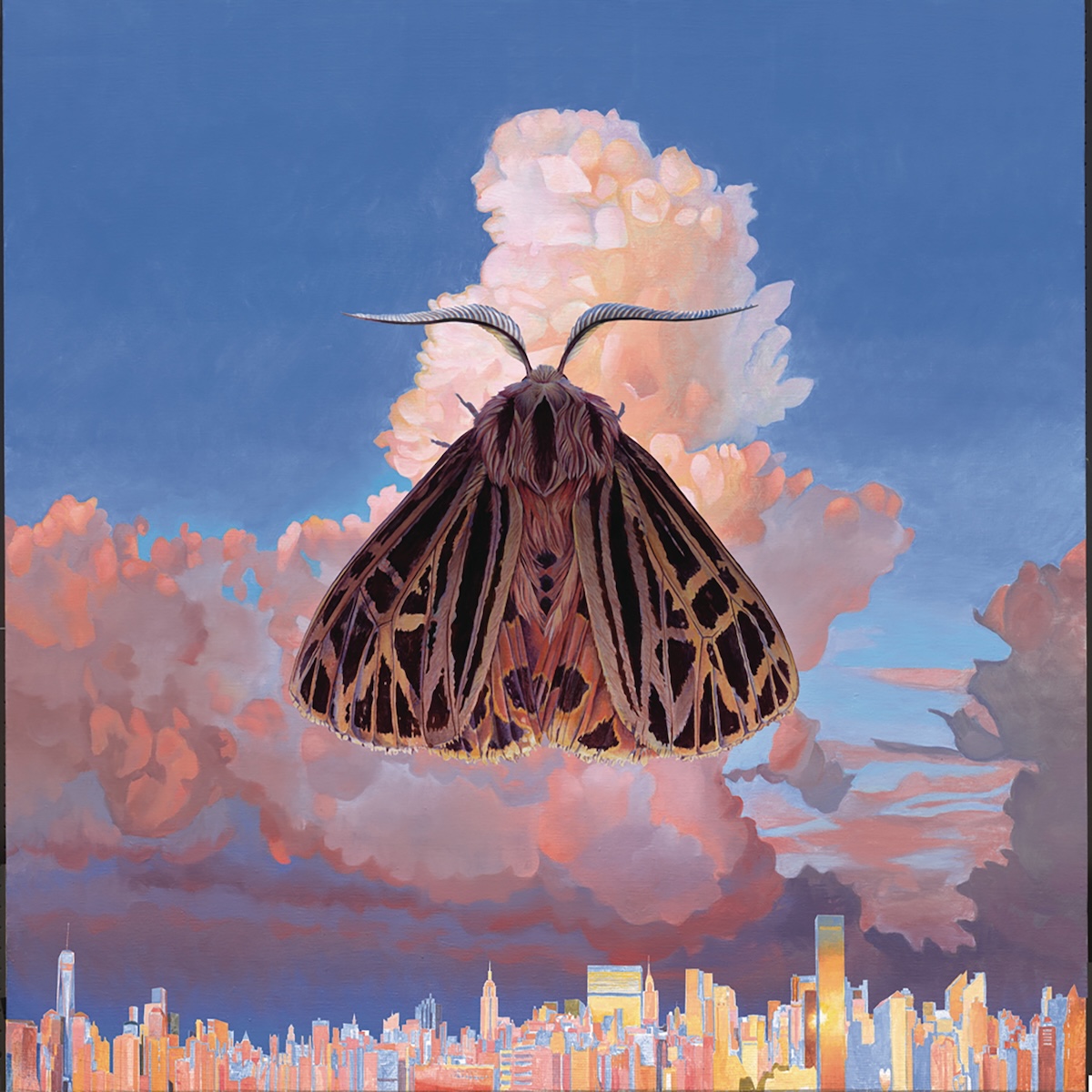- Absolutely Kosher
- 2003
It's been so long
Since you've heard from me
Got a wife and kid
That I never see
And I'm nowhere near
What I'd dreamed I be
I can't believe what life's done to me
This is how my favorite album of 2003 introduced itself to me, when I was 23 years old and life seemingly promised nothing but upside. Grad school provided a reprieve after an aimless, mostly miserable year following college, and also brought me to Athens, Georgia, a city that prioritized indie rock, college football, and excessive drinking to the same degree I did. Classes were grueling and competitive, which only amplified the work hard/play hard reputation that nearly everyone had accepted without much scrutiny; even the average ultimate frisbee game after Friday classes ended felt charged with profound, potential meaning and indeed, the bar nights that followed that would soon result in drunken hookups that turned into marriages by graduation.
Seriously, what business did I have relating to "The House That Guilt Built"? Based on two decades of anecdotal evidence and the target demographic for pieces like these, I doubt that many people who celebrated the 20th anniversary of The Meadowlands this weekend are over the age of 50. Meaning that most readers here were in high school or in the tail end of their 20s when it first dropped. "Trading youthful exuberance for a resignation that borders on bitterness! Golly, can't wait to grow up! Thanks, Wrens!" — this was the kicker in a Pitchfork blurb that named The Meadowlands the 88th best album of the 2000s. What business did any of us have relating to these washed dudes and their sob stories about broken homes, broken hearts and broken dreams? And even if we did, why would we admit to it?
This aspect of The Meadowlands feels far more worthy of reassessing than the lore that came before and after, which is likely very familiar at this point. After all, the Wrens broke no new creative ground on The Meadowlands, nor did they break through to an audience far beyond people who really cared (and still care) about online music writing. They did not go on to become a staple influence for a new wave of bands and certainly haven't spent the last 20 years capitalizing on their goodwill. No, The Meadowlands is celebrated in 2023 because people for whom a midlife crisis was at least a decade away heard a "bored and rural-poor at 35" guy call himself the best 17-year old ever and thought, "Damn, I feel that."
Having experienced a lot of The Meadowlands’ subject matter firsthand has not vindicated my original feelings towards this album as much as entering a career in mental health and understanding the importance of validation - that you can point out the objective facts about someone's life while respecting their subjective experience of it as its own form of truth. "Facts don't care about your feelings" — that's what the worst people in your life say, and that's why they tend to have a pretty dim view of therapy. But just as often, feelings don't care about facts, and a person's perception is their reality. You can tell an 8th grader who got picked last in volleyball that their suffering pales in comparison to the unimaginable atrocities occurring right this minute in a country they might not be able to find on a map; but in a context where gym class might be the single most important thing that happens in a 14-year old's day, getting picked last really might feel like the end of the world.
"Validating" is different from "transcendent" or "life-affirming" or "empowering," or whatever else gets ascribed to music that treats post-adolescent angst as something to be disregarded or discarded, overcome or treated as source material for a superhero origin story. Rather, the Wrens see all the things that keep people trapped within their own stunted worldview - the myth of unrecognized genius, an inexplicable urge for self-sabotage, fear of failure and a fear of success - and reveal that it's not the bullshit of youth, but part of the eternal human condition.
This cuts directly against the triumphant narrative that fans and critics tried to foist upon The Meadowlands, that it was 2003's answer to Girls Can Tell or Bleed American or Yankee Hotel Foxtrot from the prior two years - a parable of a band that bet on its itself after being wrung out by the major label machine and making a lot of suits look very stupid (and other suits a decent deal of money). So yeah, the lore. As legend has it, the Wrens turned down a contract from Grass Records impresario Alan Meltzer, who offered them a million dollars on the condition that they went in a more commercial direction. From all accounts, this actually did happen, even though the story's too neat and the numbers too round for me not to be skeptical.
Like many people, The Meadowlands led me to work backwards through the Wrens' catalog and both Silver and Secaucus struck me as solid, state-of-the-art, mid-90s indie rock - some shoegaze here, lots of Pixies there, and generally the same ratio of songcraft to slackness as Archers Of Loaf or Pavement or early Built To Spill, bands that could write catchy melodies but found any traditional concept of popularity to be fairly embarrassing. "You had to be there" sort of stuff. The songs were clever and catchy for sure, but nothing about them led me to believe that the Wrens could write radio-friendly unit shifters on demand. The kicker is that Meltzer eventually started Wind-Up Records, which went on to sell approximately 553 million Creed, Evanescence, and Seether albums, so I guess the guy really did have an ear for hits.
This happened in 1996. After several years of taking meetings, the Wrens saw their window closing and took up day jobs. Though three out of the four members were still living in the same house, work on their third album dragged on, and not because, say, Interscope passed on their demos. "There seemed to be no end in sight because every song sucked, every idea was bad," guitarist/vocalist Charles Bissell told Lazy-I in 2003. Still, they made it to a mastering session with the esteemed engineer Alan Douches and brought The Meadowlands to fruition, allegedly destroying the master tapes to avoid any last temptation to fiddle with the results.
All of this is more or less covered in Pitchfork's original review of The Meadowlands, written by the head honcho himself, Ryan Schreiber. In the house style of the time, Schreiber begins with a discursive yarn about his obsession with Secaucus and receiving an unmastered CD-R with placeholder art and titles that leads to the following conclusion - "There was little trace of the youthful, resonant joy or ecstatic intensity of Secaucus. This was a completely different band. These Wrens were defeated, miserable, hopeless, and -- in their own words -- exhausted." In a charmingly anachronistic detail, a Tiffany-ribboned final pressing arrives at Pitchfork's P.O. box, and the raves coming from the rest of the office inspire Schreiber to revise his initial assessment. He awards The Meadowlands a 9.5 score and the still novel "Best New Music" tag.
Surely, this was a game-changer for the Wrens and probably a big reason why most of us checked it out in the first place. But in retrospect, this is probably where the Wrens peaked. The same wrongs that helped them write the songs were still in place, and their marriages and day jobs prevented extensive touring or diligent work on the follow-up. Despite receiving the highest score of any review from 2003, it finished at #18 on Pitchfork's year end list and doesn't appear to pop up in the final tally of any other major publication. It completely missed out on the Pazz & Jop's top 40 and, for further perspective on the highly concentrated yet ultimately limited power of online music media in 2003, Liz Phair checked in at #38, ahead of You Forgot It In People.
The funnier bit of trivia in The Meadowlands lore is that the Wrens had promised to release their in-progress third LP on Drive-Thru Records, as a favor to a friend. Meaning that, had things worked out slightly differently, they would've been on the same fiscal reports as the Early November and Steel Train. And yet, while I'm not making the case that the Wrens were emo covert ops in their day, it's not that far of a stretch (I mean, look at the cover). "She Sends Kisses" and "13 Months In Six Minutes" whispered infidelities over rickety acoustics and antiquated orchestral fringe (the accordion on the former has always made me think of Counting Crows' "Omaha" if it actually came out of Saddle Creek). But when I listened to Bright Eyes or Rilo Kiley recount their drunken romantic failures in those days, it was exhilarating, like watching a more charismatic, photogenic movie version of myself operating at peak vulnerability and invincibility. If Facebook existed in 2003, The Meadowlands probably would've been compared to looking through your ex's profile pictures at 2AM.
They were too damn old to be this damn emo, but also not quite old enough to be this washed. The windswept weeper "Thirteen Grand" played with similar sounds and themes as The Magnolia Electric Co. or Ghosts Of The Great Highway during that year, but instead of grace or gravitas, they offered pathos and aimless rage - "Moving on is not fair when it leaves me on my own/ I lived my life waiting for tomorrow/ But I guess it's your turn now." The us-against-them windmill tilting of "Hopeless" and "This Boy Is Exhausted" was drastically out of step with the dance-punk and cosmopolitan cool that defined popular rock in 2003, but would soon be at the center only a few years later, thanks to younger, edgier bands with more belief in their future prospects. The Meadowlands was supposedly an influence on Arcade Fire's Funeral, at least according to Kevin Whelan. The timeline doesn't really bear this out; Funeral was largely recorded in August 2003, a month before The Meadowlands came out. "Everyone Choose Sides" virtually invents "celebration rock" a decade in advance, but it's one thing to embrace "you will always be a loser, and that's OK" as a credo when you're amongst likeminded people in a sweaty rock club on a Friday night. The Meadowlands accesses the feeling of being a loser when you actually have something to lose.
Shortly after a blink-and-you'll-miss-it subliminal at Grass Records, Bissell screams, "I walked away from more than you can imagine/ And I sleep just fine," which was tempting to use as their valedictory mic drop…but have you heard the rest of The Meadowlands? It begins with Bissell somnolently whispering over the sound of crickets and ends with him drunkenly pounding at a piano. The most upbeat songs are called "This Boy Is Exhausted" and "Hopeless." The song called "Happy" is one of the most tortured.
Even the moments that sorta feel like triumph are more of a dead cat bounce. Towards the middle of "Happy," Whelan shouts "I wanted you, but I'm over that now!" and a tremolo bass riff enters the mix, like a full body shiver after saying something you know can't be taken back. Most bands would use that as the climax, but "Happy" calls Whelan's bluff and keeps going - "I'm so sick of you!/ What we went through!" I've heard the chorus of "Boys, You Won't" at least three different ways - "I'm feeling down," "I've been knocked down," "I've been let down" — but either way, the response is the same: "But I stood up." To face another round, and most likely, to get knocked down again.
Which makes it all the more disappointing that they couldn't get over their own bullshit to make more music. I doubt that whatever Bissell is teasing on his turntable right now approaches the polished grandeur of Smile or (presumably) Detox. The ultimate irony is that for a band of self-professed perfectionists, The Meadowlands is an extremely imperfect record, by their own admission a diorama held together by spit and duct tape. The sequencing is lopsided. The Wrens write songs about women, some named, many not. But they more often write songs about each other, and they write songs about other Wrens songs. There's all sorts of misplaced punch-ins on "Boys, You Won't." Several songs completely bury the lyrics, and the guitars of "Ex-Girl Collection" never seem to lock into place. The piano that introduces "Thirteen Grand" is jarringly out of tune with everything that follows. But if you put any stock in the lyrics - and I assume you absolutely do, because without them, The Meadowlands might simply be the best 1999 indie rock record of 2003 - confessing to and living with your mistakes is the entire point.
The best evidence of The Meadowlands’ unique magic isn't the lack of a proper sequel but rather, Whelan's debut album as Aeon Station. Observatory was about as close as you can get to an actual Wrens record without being the genuine article; there are many, many profiles that explain why Bissell was the only member not involved, but otherwise, it was a collection of bittersweet, surging, even triumphant indie rock anthems filled with lyrics about missed opportunities and obstacles overcome. Most reviews were cautiously positive, lauding Whelan's craft while acknowledging the impossible standards to which it was being subjected. But some went right ahead and pointed out the obvious: Observatory wasn't lacking a certain je ne sais quoi, but something more tangible - Charles Bissell.
But also, reality had punctured the illusion created by The Meadowlands that the fate of the "Wrens-ditch battle plan" was the single most important thing imaginable to the Wrens - or really, that music and its shitty, adolescent feelings were worth sacrificing everything over. But if that wasn't really true by 2003, it certainly wasn't by 2021. Bissell survived cancer. They've spent an entire decade carping at each other over social media and in the press. Wives, kids, jobs, etc. When I had interviewed Whelan at the end of 2021, he was not rural-poor; in fact, his job title read "Global Head of R&D Strategic Initiatives and Operations at Johnson & Johnson," which put him in charge of 400 employees, few of which know anything about the Wrens. We talked about healthcare and home ownership and the Mets and weddings. There's always going to be some kind of asymmetry in any artist/writer interview, especially when it's an artist who soundtracked some of the sloppiest, saddest nights of my early 20s; but for that hour or so, we were just a couple of satisfied, middle-aged dudes with full-time careers and music-related side hustles who couldn't believe what life's done to us.
By the time I actually turned 35, I didn't relate all that much to The Meadowlands anymore. Two decades ago, it was an album that I could only bear to listen to if I had a proper supply of Terrapin Beer. Nowadays, I can throw it on with my wife in the car. Certainly, there have been breakups and career setbacks and times when I wondered if life was ever going to be more than what was right in front of me, but those were things out of which I might get a sleepless night or two. Using it as raw material for a concept album? That's exactly the sort of thing I would do in 2003, and I can't help but feel just a bit jealous of that fucked-up little guy and their ability to access such indulgent depths of self-pity. Even if The Meadowlands was wrong about the factual futures of the Wrens and myself and probably plenty of people who once loved it, it was completely right about how it felt to first experience it - a time when life might promise nothing but upside and all you can do is look down.
We rely on reader subscriptions to deliver articles like the one you're reading. Become a member and help support independent media!






